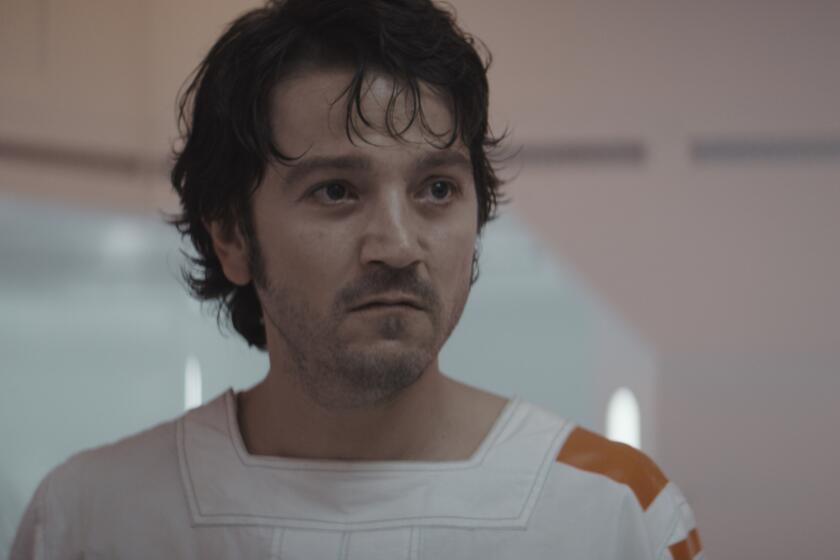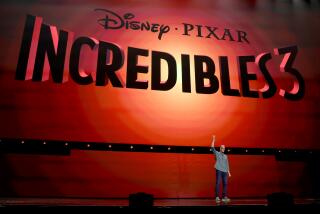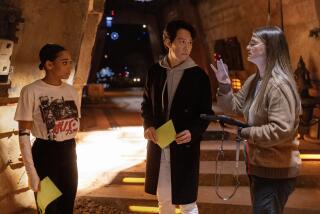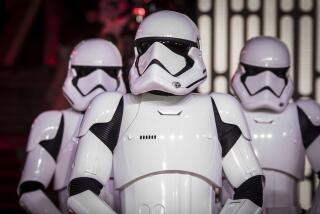Unlike ‘Andor,’ ‘Mandalorian’ is going all in on ‘Star Wars’ lore. Here’s what to know
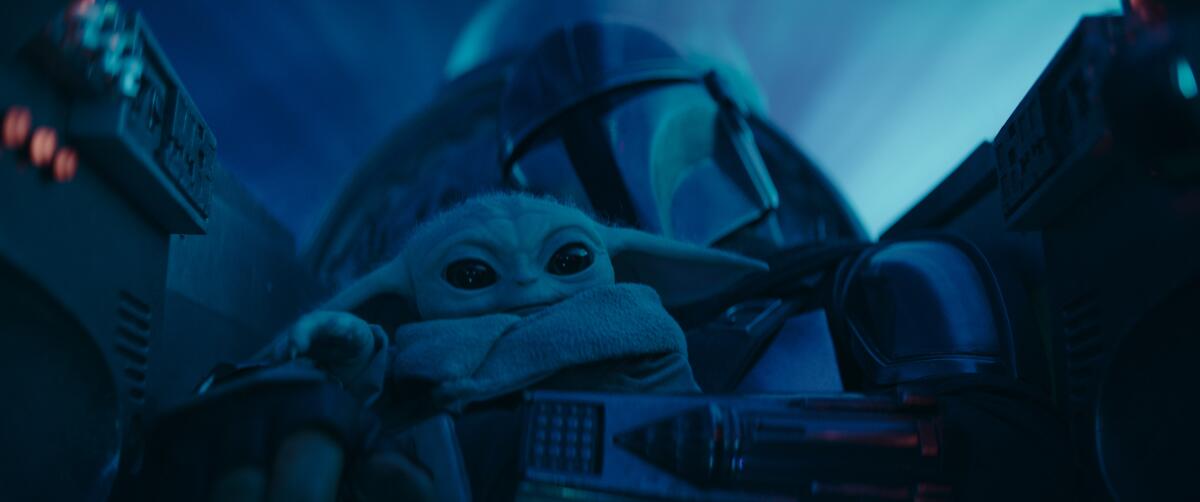
Everyone’s favorite space father-son duo is finally back.
The third season of “The Mandalorian,” which launched Wednesday on Disney+, is set to follow the now-excommunicated Din Djarin’s (Pedro Pascal) journey for redemption while he cares for his Force-sensitive charge Grogu (a.k.a. Baby Yoda).
How a prequel of a prequel, starring Diego Luna as future Rebellion spy Cassian Andor, became the jewel in the crown of ‘Star Wars’ television.
“The Mandalorian” Chapter 17, titled “The Apostate,” picks up after the events of “The Book of Boba Fett,” which saw Din reunited with his adorable youngling after sending him off to be trained by Jedi master Luke Skywalker at the conclusion of “The Mandalorian” Season 2.
With a couple of action set-pieces, in-universe jokes and references, the episode highlights what has made “The Mandalorian” a hit: It’s a fun (and funny) adventure story with heroes who are generally easy to root for. It’s classic, accessible “Star Wars,” with a deft handling of Easter eggs and lore that can please longtime fans as well as spark the curiosity of those newer to the franchise. “The Mandalorian” has proved that blaster shootouts and the antics of a hungry cute toddler remain entertaining.
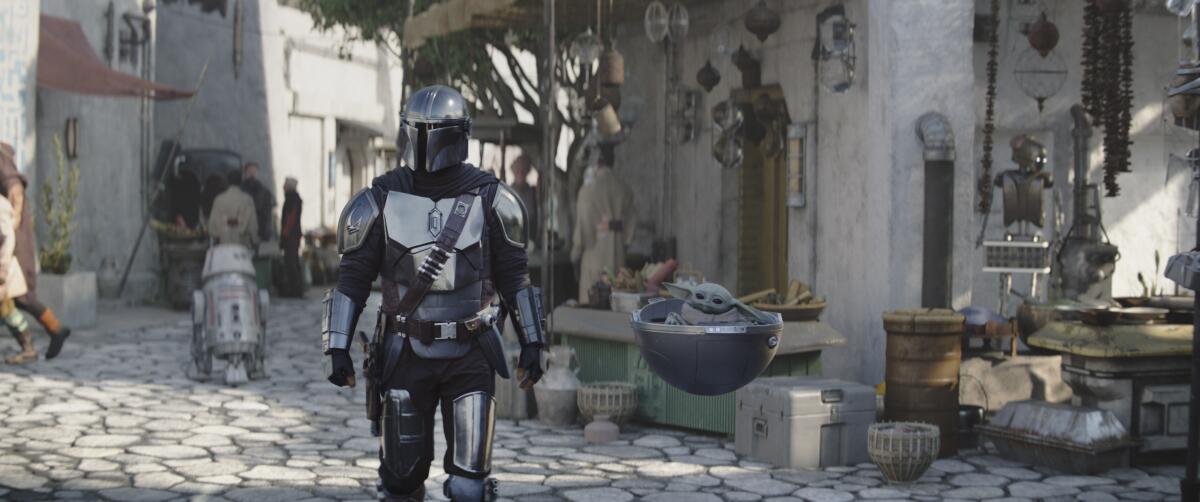
It’s almost a direct contrast to “Andor,” the latest acclaimed “Star Wars” series, which was hailed as a “prestige” political thriller for its ambitious storytelling that showed the galaxy far, far away could transcend the space opera genre. While “Andor” is no less faithfully rooted in “Star Wars” than “The Mandalorian,” it did not rely on familiar factors like the Jedi and the Force — or nostalgia — to make its points. One of “Andor’s” strengths was in showing how ordinary people live under Imperial rule when powerful space wizards or honor-bound warriors are not around to save the day. “Andor” took risks that helped it appeal to longtime “Star Wars” fans who have been hungry for more complex, or “grown-up,” stories set in the beloved universe, as well as franchise newcomers who are just interested in good television.
With Season 3, it appears “The Mandalorian” is going even deeper into Mandalorian and “Star Wars” lore. The series has dropped plenty of hints over the course of its run about the fate of Mandalore and the reasons for the splintering of the Mandalorian diaspora, but much of its recent history remains untold. There is also plenty of Mandalorian backstory that has been established in the animated “Star Wars: The Clone Wars” and “Star Wars Rebels” series. Perhaps Season 3 of “The Mandalorian” will finally reveal what happened between Bo-Katan Kryze (Katee Sackhoff) leading the Mandalorians against the Galactic Empire in “Rebels” and her first appearance in “The Mandalorian.”
The connections and references to the broader “Star Wars” universe have always been a feature of “The Mandalorian” — its most popular character is a Force-wielder who resembles a famous Jedi master — and Season 3 wastes no time dipping into that expansive sandbox of alien races and locations. Below are some of the major references in the season so far.
The Children of the Watch: Din is a (former) member of a Mandalorian sect known as the Children of the Watch, which, according to Bo-Katan Kryze, is a cult committed to the ancient ways of Mandalore that broke away from the rest of Mandalorian society. They appear to have a connection to the Death Watch, a Mandalorian terrorist group introduced in “Star Wars: The Clone Wars.”
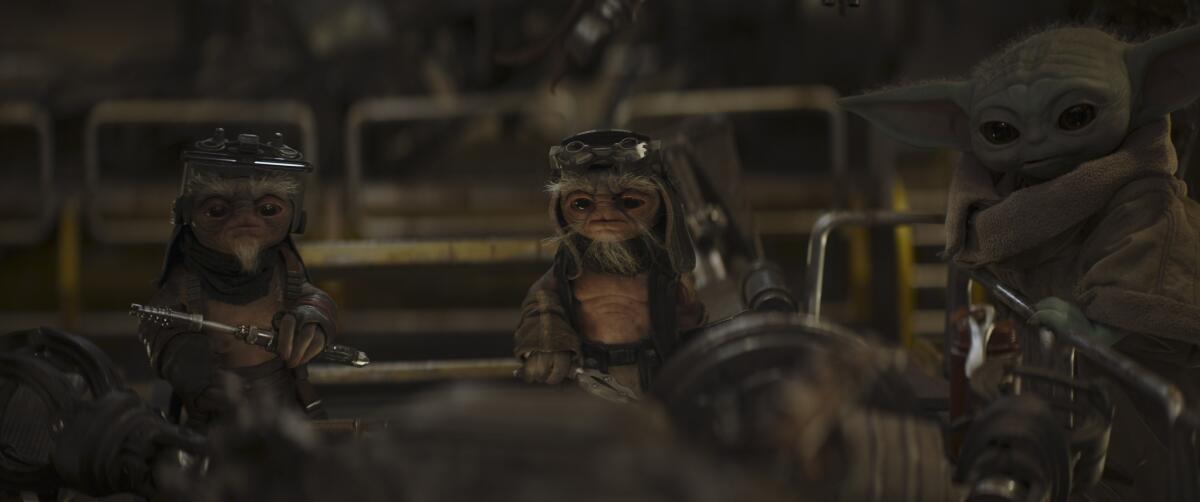
Purrgil: Grogu spots large shadows of tentacled creatures outside his window while he and Din are traveling through hyperspace. These were most likely whale-like creatures known as purrgil that live out in space. Purrgils were first introduced in “Star Wars Rebels,” where a certain Jedi padawan was able to forge a connection with them using the Force.
Anzellan droidsmiths: Not even Grogu could resist the cuteness of the diminutive species described by Greef Karga as “the best droidsmiths of the Outer Rim.” Droidsmith Babu Frik, who appeared in “Star Wars: Episode IX — The Rise of Skywalker,” was the first Anzellan to appear in the franchise.
Kalevala: Din takes Grogu to Kalevala, “another planet in the Mandalorian system.” The planet is the homeworld of House Kryze, and was first mentioned in “Star Wars: The Clone Wars.”
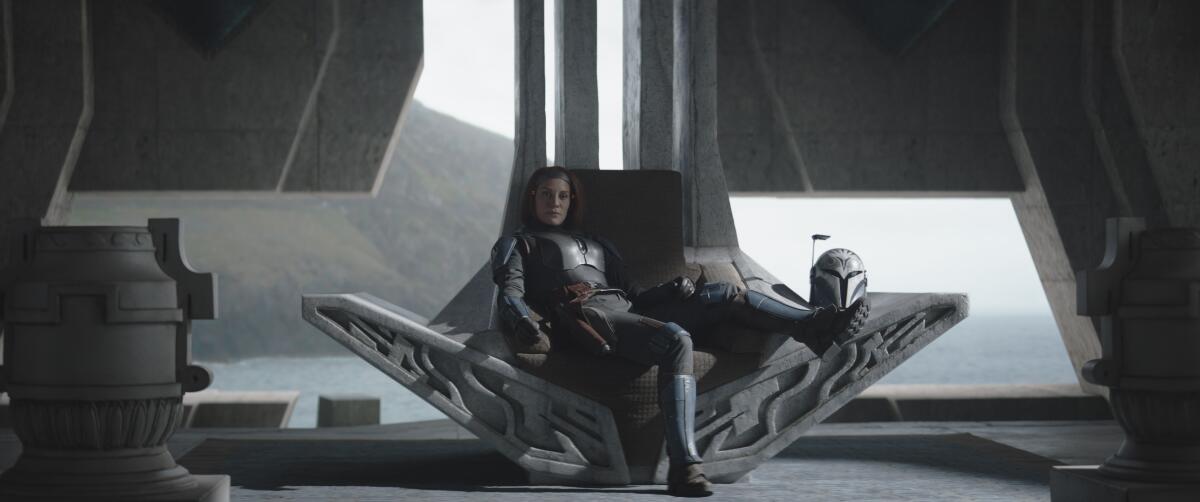
More to Read
The complete guide to home viewing
Get Screen Gab for everything about the TV shows and streaming movies everyone’s talking about.
You may occasionally receive promotional content from the Los Angeles Times.
